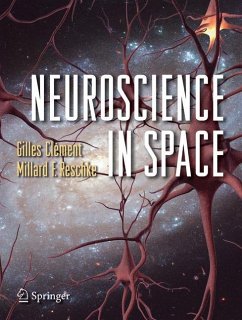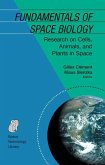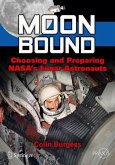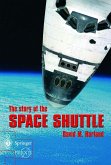Why write this book? Of all the intricate components of the human body, the central nervous system is the most responsive to the environment, detecting and responding to changes immediately. Its complexity, however, also means that it is still one of nature's best-kept secrets. Considering that the exploration of space is often thought of as the final frontier in the discovery of our origin and the preparation for our future, Neuroscience in Space is a book addressing the last, and greatest, scientific frontier. All living things on Earth have evolved in the presence of gravity and all of their biological systems have anatomical and physiological mechanisms designed to interpret and measure the force of gravity. However, in the near weightlessness of space, the sensory systems that provide basic information regarding linear acceleration no longer function as they did on Earth. As a result, most if not all, physiological systems dependent on the body's central nervous system are in flux until a new microgravity state is realized. This includes adaptation of basic life sustaining functions such as blood pressure control and cardiac function, as well as other critical functions for everyday activities including balance, coordinated movement in three-dimensional space, and the regulation of sleep. Bones that supported body weight on the ground no longer have that load to bear. They begin to lose mass and strength, as do weight-bearing and postural muscles in the legs.
From the reviews:
"Clément ... present a comprehensive review of animal and human neuroscience research conducted either in space or with subjects who just returned from space. The information is presented with the detail that scientists require, clearly outlining the complicated issues involved in sending humans on brief and extended space journeys. ... Summing Up: Recommended. Graduate students through professionals." (D. K. Fry, Choice, Vol. 46 (7), March, 2009)
"The complexities of changes to the central and peripheral nervous systems as a result of space travel are described in great detail in this 322-page book ... . For those of you who are thinking that now may be a good time to move to Mars, there is a section (albeit short) on what to expect ... you get there. ... if you want a bit of diversion while still remaining in the neuroscience world, here is a book that many will find intriguing." (American Journal of Neuroradiology, Vol. 30, March, 2009)
"Clément ... present a comprehensive review of animal and human neuroscience research conducted either in space or with subjects who just returned from space. The information is presented with the detail that scientists require, clearly outlining the complicated issues involved in sending humans on brief and extended space journeys. ... Summing Up: Recommended. Graduate students through professionals." (D. K. Fry, Choice, Vol. 46 (7), March, 2009)
"The complexities of changes to the central and peripheral nervous systems as a result of space travel are described in great detail in this 322-page book ... . For those of you who are thinking that now may be a good time to move to Mars, there is a section (albeit short) on what to expect ... you get there. ... if you want a bit of diversion while still remaining in the neuroscience world, here is a book that many will find intriguing." (American Journal of Neuroradiology, Vol. 30, March, 2009)








